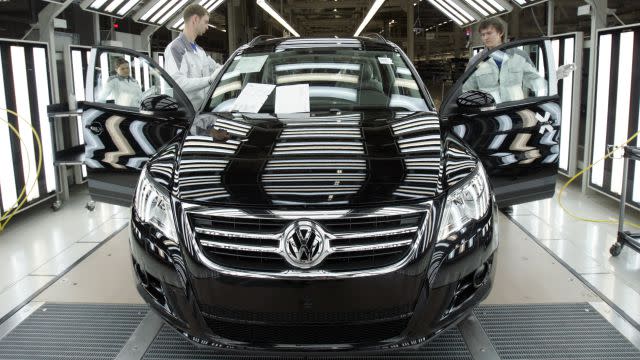That device also defeated the public’s trust in the Volkswagen brand

Why would a company that relies on public trust and a reputation for ace engineering risk $18 billion in penalties, corporate ignominy and global embarrassment? There is no rational reason.
Yet, to squeeze out a barely perceptible improvement in fuel economy and acceleration, Volkswagen did just that. The United States Environmental Protection Agency (EPA) disclosed last week that the world’s biggest automaker had cheated on critical emissions tests that allowed it to sell so called “clean” diesels spewing far more pollutants than the company acknowledged—or than were allowed.
The environmental regulators have ordered the company to recall nearly 500,000 vehicles in the US—and the company has confessed that it cheated on rules applied to 11 million vehicles worldwide.
To try to understand the thinking behind the Volkswagen scandal, it helps to recognize the underlying attitude the auto industry has displayed for decades in the face of government efforts to cut emissions and improve efficiency—the key steps in fighting auto-induced smog and global warming: Don’t tell us how to build the cars we put on your highways.
For a modern industry, its attitude toward the public is straight out of 1950s television: Father Knows Best.
Of course, the car business isn’t really rational to begin with. What can you say about an industry in which the first question that comes up on the showroom floor with a customer about to spend half a year’s salary is: “What color do you want?”
VW is not alone in trying to get around mileage-and-emissions requirements. Over the past four decades, Ford has been forced to roll back its claimed efficiency, Hyundai-Kia has been fined for lying about its gas mileage, and Chrysler, General Motors, and Honda, along with most diesel engine manufacturers, have been caught cheating on clean air tests.
In VW’s case, engineers devised a software trick, known as a “defeat device,” that let its diesel-powered cars deliver acceptably clean results only when being tested, while on the road they spewed the lung-damaging soot and nitrogen oxides that cause smog and exacerbate asthma and other lung diseases.
By flouting the requirements of the Clean Air Act, which the US Congress passed and updated with overwhelming bipartisan majorities and which two Republican presidents signed, VW incrementally raised the fuel economy of its diesel models. But the increase was so marginal it was unlikely to be noticed by drivers, says Clarence M. Ditlow, the executive director of the Center for Auto Safety, with which our Safe Climate Campaign is affiliated.
And at what cost to the environment?
Talk about German engineering! For decades it has claimed to be the benchmark of industrial progress. Now we learn it was unable to deliver cars that met consumers’ needs without poisoning them.
According to the EPA, VW has been conducting its deliberate diesel deception since 2009. It took regulators years to catch on because the government relies on data provided by the auto companies to certify vehicles—and VW lied. It’s that simple.
Auto companies mostly test the models’ emissions themselves and submit the results to the EPA. The fuel efficiency tests are similar: Rather than testing every model it sells, a company routinely tests an efficient model and extrapolates from that to report its fuel economy for a whole class of less-efficient vehicles. That’s why motorists shouldn’t be surprised when window-stickers exaggerate what they will experience on the road.
VW hid the existence of the defeat device when it filed required legal documents with the EPA and California’s Air Resources Board. The International Council on Clean Transportation, an environmental research group, and engineers at West Virginia University became suspicious when their tests demonstrated that the cars that passed the lab test flunked on the road, emitting 40 times more smog-forming pollutants than the standard allowed. The car maker lied, repeatedly denying any wrongdoing when the federal and state agencies presented it with the researchers’ evidence.
It took a year of meetings with officials from the EPA and the California agency before VW confessed to the subterfuge.
Consumers are right to feel deceived. The world’s largest automaker, a multibillion-dollar company, lied to them, to the American government, and to regulators around the world. It sold consumers a “clean” diesel engine that was anything but.
Federal and California state regulators are left to sort out the mess.
They must begin with a thorough investigation, taking sworn testimony to determine what VW did, and who knew what and when. The EPA has taken a good initial step to see if others are engaging in similar fraud. It must assess powerful penalties on VW—$18 billion, based on the maximum allowed fine of $37,500 per vehicle, an amount that no auto company can write off as merely the cost of doing business. And the Obama administration must prosecute any officials if criminal behavior is discovered.
If Volkswagen would put as much effort into making better, cleaner cars as it put into cheating, we’d all breathe easier.
Learn more at www.safeclimatecampaign.org. We welcome your comments at ideas@qz.com.


Sign up for the Quartz Daily Brief, our free daily newsletter with the world’s most important and interesting news.
More stories from Quartz:
